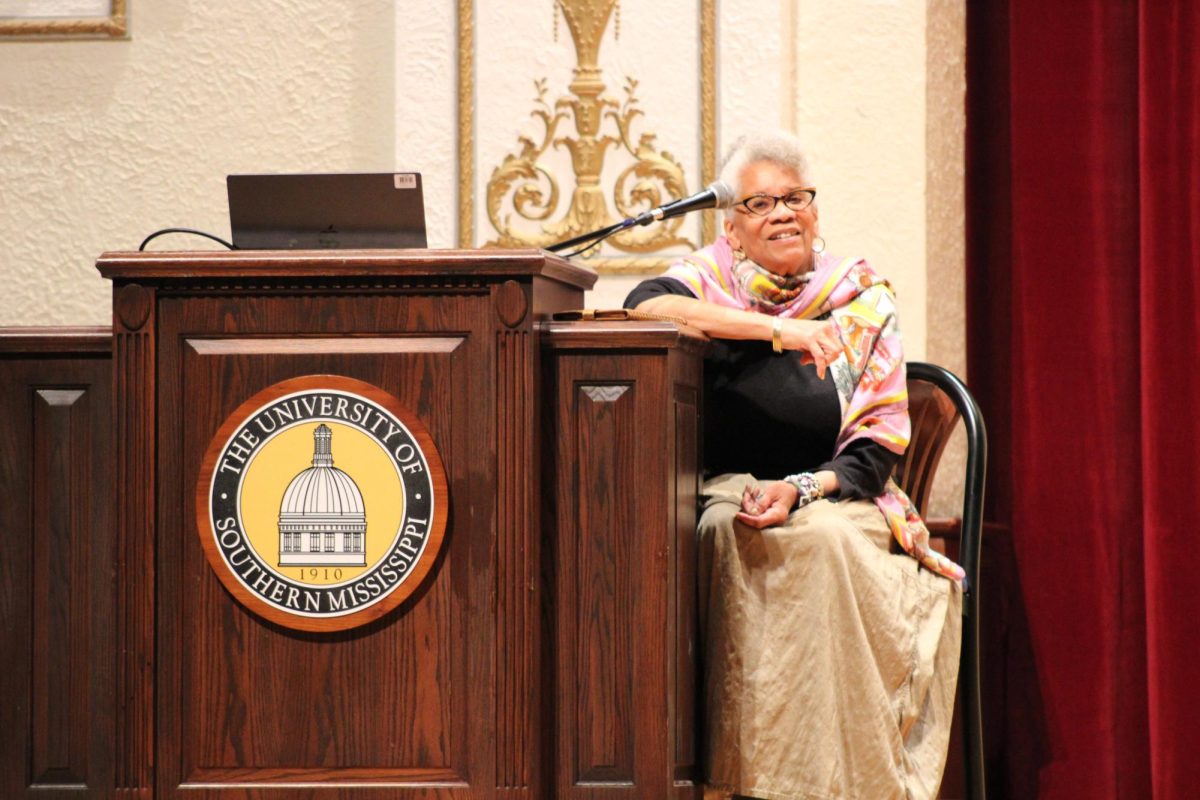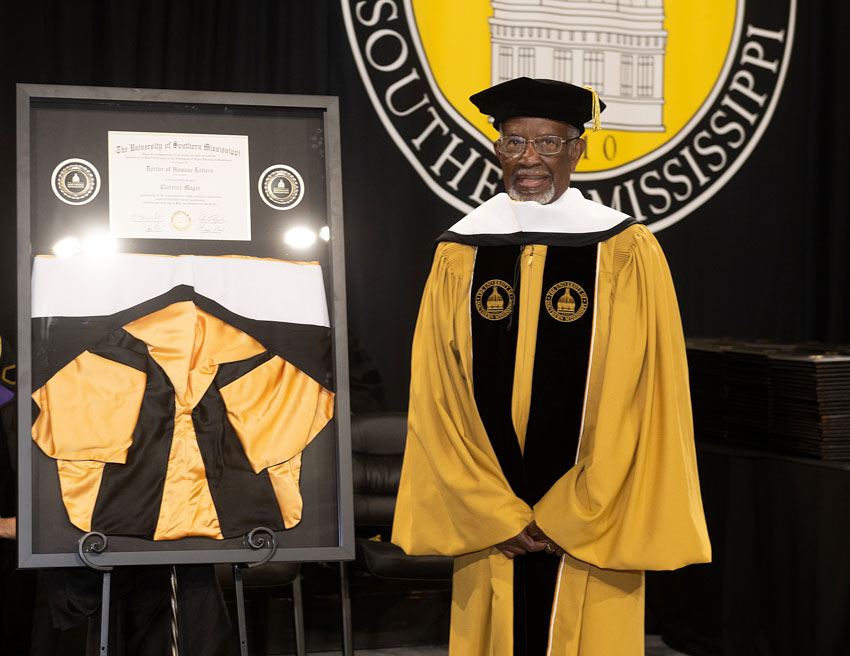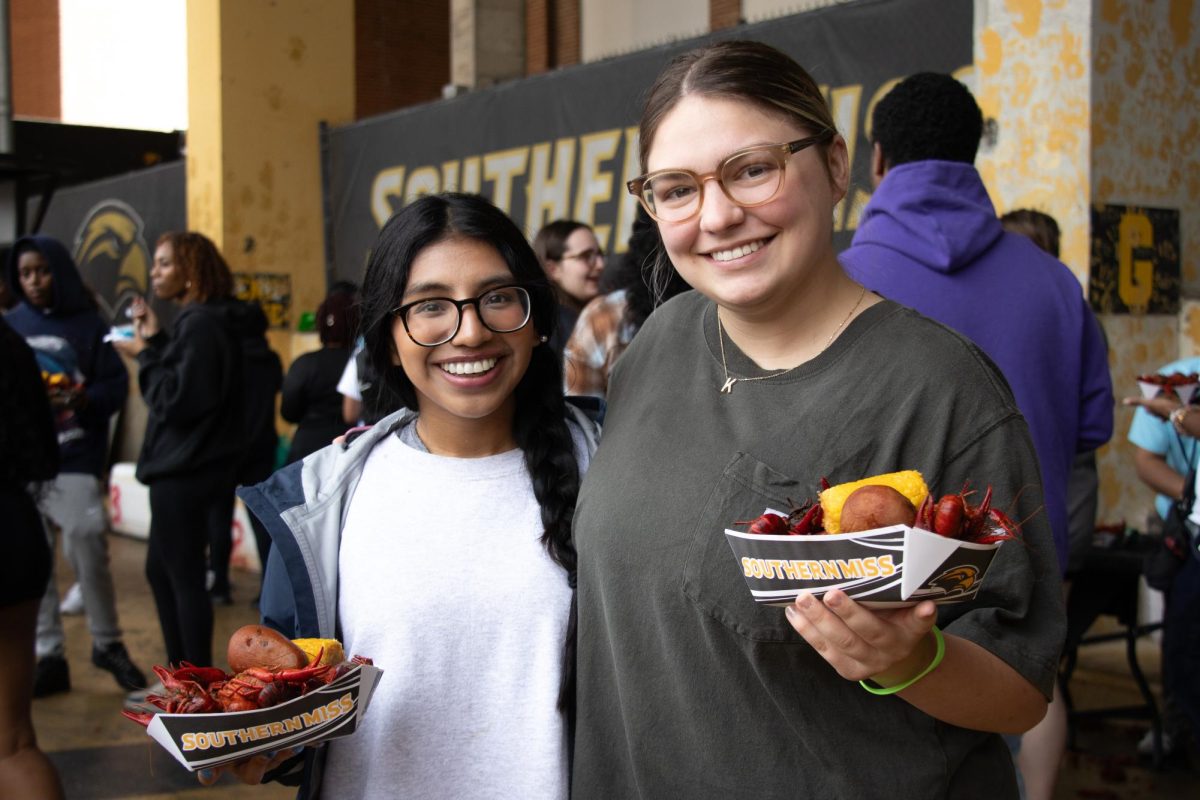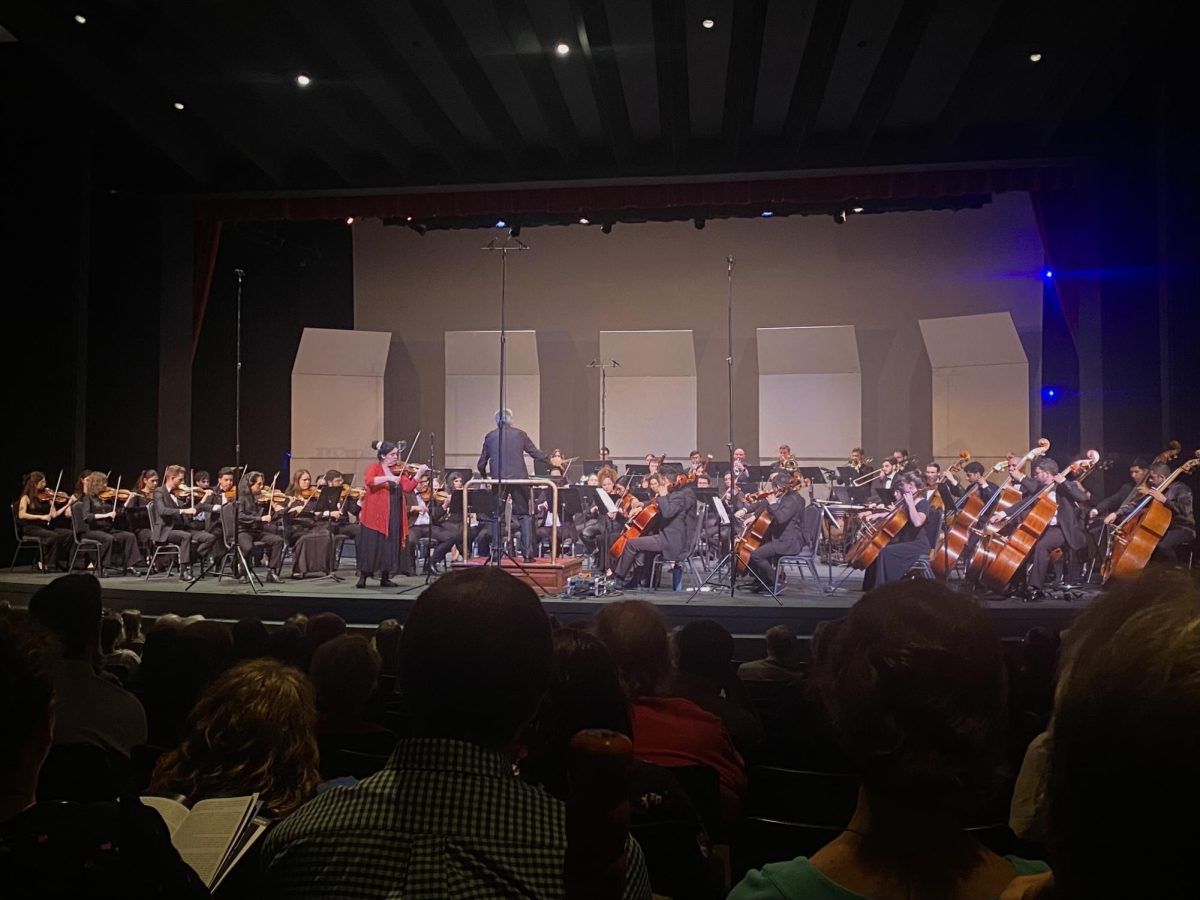Dr. Jessica B. Harris, a renowned historian and educator on African American culture and cuisine, spoke to students and community members during the 50th University Forum event at Bennett Auditorium on Nov. 12. Harris, known for her work tracing the culinary contributions of Africans and their descendants, captivated a packed auditorium during her presentation. She has written multiple books on the subject, one of which inspired the Netflix series High on the Hog, in which she is featured.
Harris was not the original speaker for the forum but was warmly welcomed with a full audience and presented with a university bento box in appreciation of her attendance.
Harris’ lecture focused on the significant influence of African culture on American cuisine. She explained how various dishes, now staples in the U.S., have their origins in Africa and came to the country through the forced migration of enslaved Africans. Harris also touched on the Columbian Exchange and how it introduced ingredients like tomatoes to Italy, chilies to Thailand, and potatoes to Germany and Ireland. Similarly, the transatlantic slave trade played a pivotal role in integrating African foods into the American diet.
“One thing that means the most to me is the importance of Jessica Harris’ message about the way food helps us to understand the kind of multi-faceted contributions to our wonderful American life,” said Dr. Andrew Haley, Director of the University Forum.
Throughout her speech, Harris detailed the history of several dishes, including red beans and rice, a New Orleans staple. She explained that this dish, traditionally eaten on Mondays, originated when enslaved African Americans used the ham bone from Sunday dinners to cook with red beans while doing laundry. This connection between slavery and food preparation was a recurring theme in Harris’s lecture.
“It was educating and exciting to learn about various foods along with their history,” said Scarlett Scott, a sophomore psychology major who attended the event.
Harris also discussed the history of watermelon, a fruit often negatively associated with African Americans. She highlighted its importance to enslaved people, noting that watermelon provided essential hydration and nutrients while working in harsh field conditions, especially when water sources were contaminated, and food was scarce.
“So, the watermelon, like everything else, tells a story and reminds us that whether it’s a slice of watermelon or a mess of greens or a dish of stewed okra, when it comes to food,” said Harris, “all food, when it comes to my food and the food of African Americans and its connections to the African continent, the history is in fact and indeed on the plate.”
In her speech, Harris emphasized the lasting effects of slavery on American culture and food. She urged the audience to reflect on their food choices today, noting that while many people now consume the diet of a laborer, they do not perform the physical labor once required. Harris also raised concerns about genetically modified foods and questioned their impact on health.
“Remember its history, so what I would like you to come away with is the thought of maybe looking back,” Harris said. “Sankofa, look back to know where you’re looking forward. Think about how to move forward with that knowledge.”
Harris Highlights African American Impact on U.S. Cuisine
1
0
Donate to SM2
Your donation will support the student journalists of University of Southern Mississipi. Your contribution will allow us to purchase equipment and cover our annual website hosting costs.
More to Discover







































Adam Shepherd | Nov 22, 2024 at 6:00 pm
Great Job